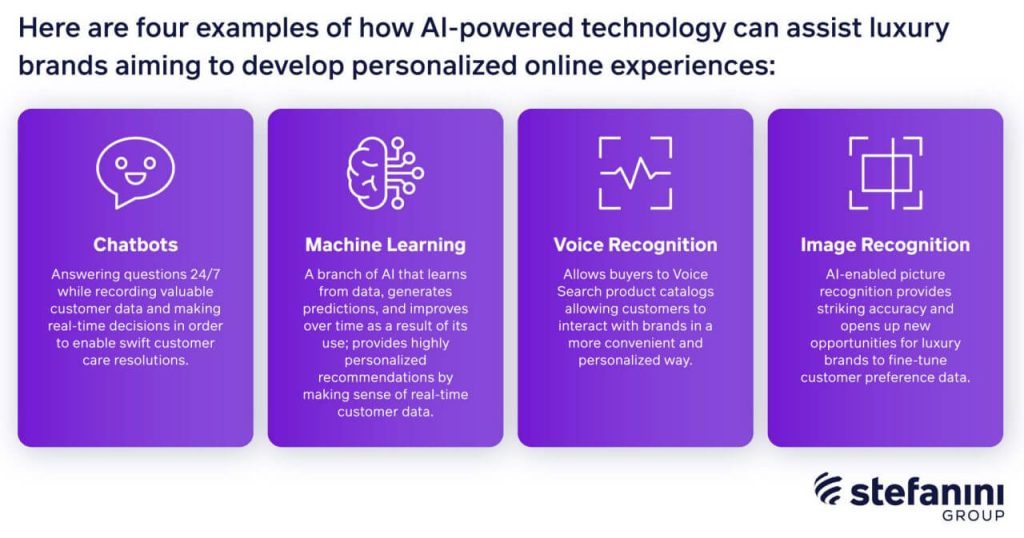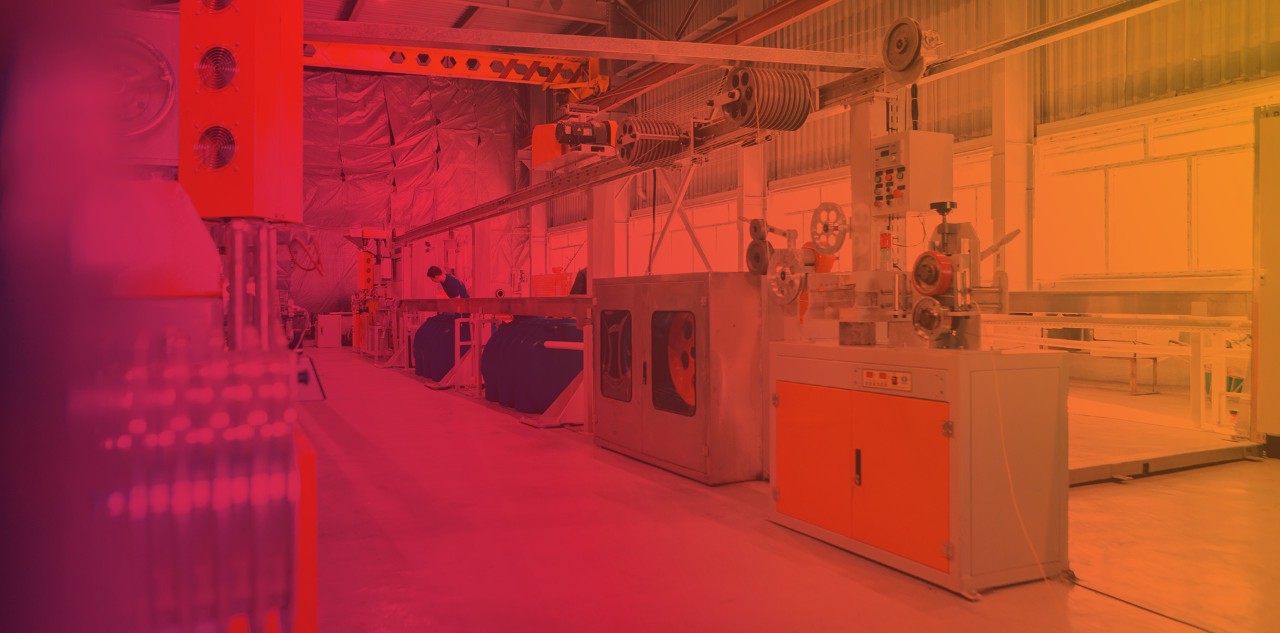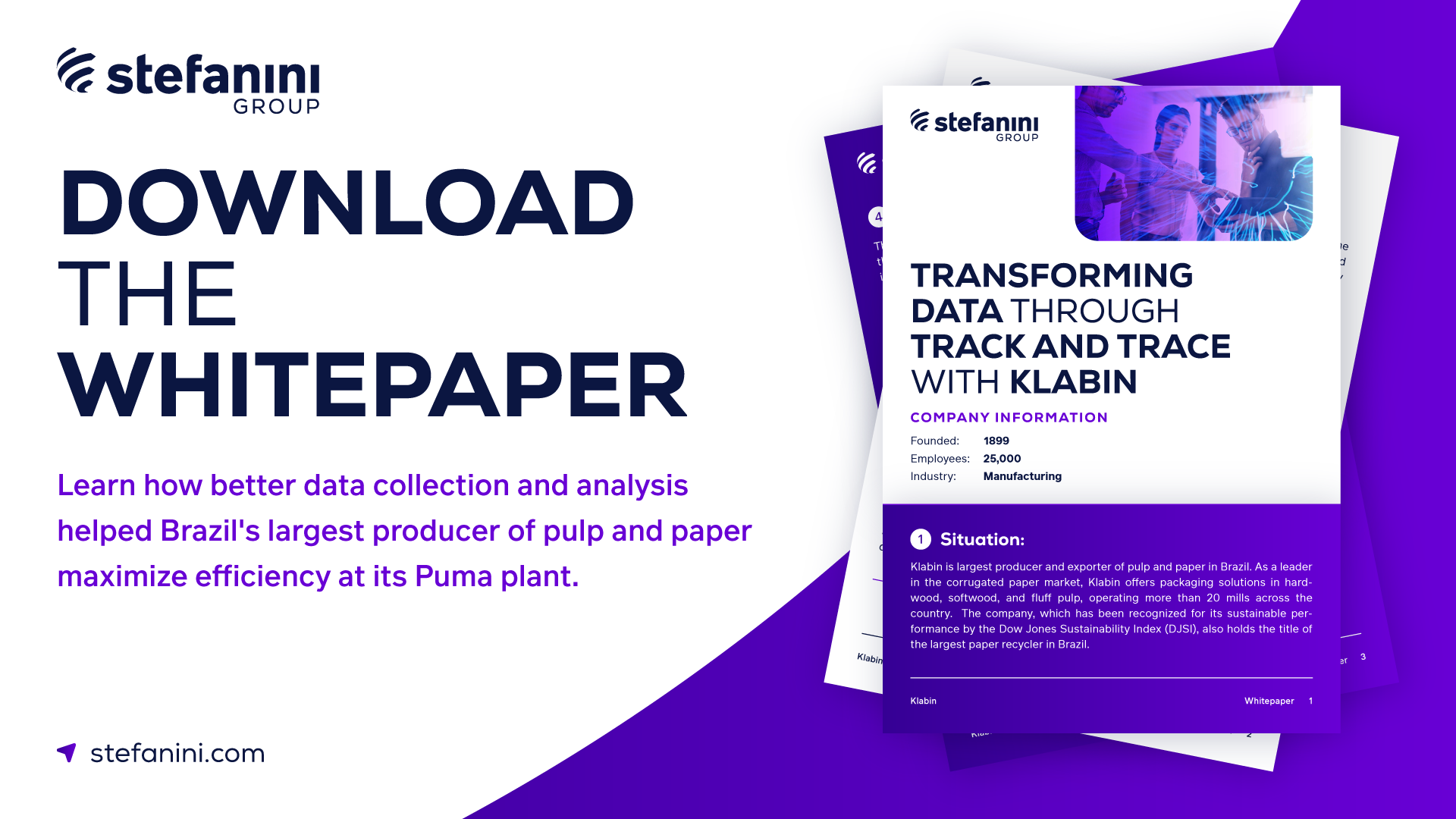The struggle to shut down the illegal trade of counterfeit luxury goods continues to prove an overwhelming task for major brands. The ubiquity of online access and ease with which counterfeiters can steal or duplicate brand features has only made it easier for consumers to unwittingly purchase fakes. To assist in this effort, Luxury brands have turned to Artificial Intelligence (AI) as a means of identifying counterfeit goods, shutting down fraudulent online retailers, and enabling personalized and value-driven customer journeys that make purchase of authentic goods more worthwhile.
What is the economic impact of counterfeits for luxury brands? Read to blog to find out!
How Artificial Intelligence Can Assist in Anti-Counterfeiting Efforts
The sale of counterfeit luxury goods remains by far the most profitable form of illicit trade. The World Customs Organization (WCO) estimates that 7-9% of global trading relates to fake products and estimates that counterfeit sales garner $460 billion dollars each year.
The success of the illegal market is driven by several factors. Sellers of counterfeit goods are often unconcerned about the consequence of violating intellectual property rights as few countries have robust legislation in place. Some countries have yet to enact legislation governing online sales and consequently, counterfeiters operate with minimal hindrance and their profits continue to grow.

Similarly, digital vendors selling fakes can easily reproduce similar graphics and materials as legitimate retailers, making ip infringing counterfeit sales as simple for a consumer as buying directly from a retailer. Furthermore, counterfeits sold in the e-commerce space are impossible to verify until the item arrives and this the damage occurs as soon as they are charged.
Despite substantial investment in brand protection technologies and efforts by major luxury retail brands to shut down illicit trade, the counterfeit market continues to grow. The process of identifying fakes, tracking fraudulent online activity, or even simply ensuring that retails aren’t selling counterfeit goods are all costly and time consuming measures that struggle to keep pace with illegal activity.
However, Artificial intelligence has enabled brands and brand protection service providers to take on more sophisticated strategies. Computer vision can be used by machine learning algorithms to detect fakes and AI technology is uniquely suited to analyzing and acting upon the large sums of data Luxury brands use to track customer behavior and quick evaluate the legitimacy of high quality goods.
Fight counterfeits with digital brand protection. Click to learn more.
Examples of AI Enabled Brand Protection Technologies
- Despite its historical problem in allowing counterfeit sales, Amazon’s Project Zero initiative uses a combination of machine learning, self-service tools, and product serialization codes to help brand owners quickly shut down fraudulent listings.
- Chinese e-commerce giant Alibaba, along with 20 other international brands, created the ‘Big Data Anti-Counterfeiting Alliance’ in 2017. This initiative implemented AI to detect flaws in product listings and customer reviews in order to remove counterfeit postings as quickly as they appear. Early results using AI evaluations technology showed a 25% decline in take-down requests and has closed down 230,000 IP-infringing stores on its sister website, Taobao.
- Similarly, an anti-counterfeit algorithms based on massive databases of information on top luxury goods have been developed by two very distinct companies, Goat and Entrupy. Their AI tools search the respective databases for the even the smallest of anomalies to ensure customers receive authentic goods. Data science technologies. Deep learning algorithms outperform the human sight and will detect any deviations in counterfeit goods from brand standards in order swiftly flag it as a fake.
- Luxury shoes have surpassed luxury handbags in appeal, resulting in a surge of counterfeit footwear. Before mailing their shoes to Goat for AI authentication, Goat resellers submit photographs of their shoes for human experts to review. Their AI solution then serves to verify expert review and to build their use case database.
- Entrupy’s evaluation process is guided by a “convolutional neural network,” which is supported by a large database of photographs of luxury handbags. To compile this database, they began by gathering bags that they believed were genuine and dated back as long as 80 years.
The ROI of Threat Intelligence – read the blog to protect your profits and fight fakes.
Why AI Can’t Solve the Problem Entirely
The overall challenge presented by the sale of counterfeit goods is due to a collection of smaller issues. For example, counterfeiting activities can be classified into three types:
- Fake products: A phony merchant is attempting to offer you something that is not genuine. Many websites, for example, are selling new iPhones at ridiculously low costs. The fact that the iPhones are phony is, of course, the secret behind this deal.
- White labeling: is the process of removing a company’s logo and branding from its products. It’s not prohibited by definition as long as the original brand approves. If this isn’t the case, merchants will take control of the goods and market it as their own.
- Image piracy: Online shops occasionally exploit photographs from legitimate catalogs for promotional purposes. It can deceive customers into thinking the thing is better than it is.
AI is extremely effective when tackling a task with set parameters based on big data analytics. The true challenge, however, is making sense of all the available data and creating actionable insights.
Each of the above problems necessitates the use of a different deep learning algorithm or separate teams of data scientists. Consequently, luxury retailers may consider working with a brand protection service in order to manage the scale of anti-counterfeiting activates that need to be addressed.
However, as counterfeiters garner more wealth, they are able to improve their production methods. They too have begun using Artificial intelligence to generate better duplicates of original products. Counterfeiters may begin to create goods that can dupe counterfeit detection AI-systems and professionals alike.
Despite their reputation, many luxury brands frequently use Asian factories with low-cost labor. Often counterfeit goods are being manufactured from the similar locations and potentially with similar materials. If this is the case, consumers may choose to purchase fakes because the reduced prices represent greater value.
How AI and Personalization Are Transforming Luxury Retail Online
This value factor occurs alongside a swell of demand for seamless and personalized digital purchasing experiences. This is especially true for Millennials and Gen Z consumers, who frequently begin their brand discovery journey over online platforms or through social media channels. The same generations of young, affluent consumers are responsible for 85 percent of worldwide luxury sales growth and now account for over 30% of all luxury purchases.
Artificial Intelligence has assisted retailers in determining the motivation behind a purchase, but it can now benefit buyers as well. Luxury brands likely have significant quantities of data documenting their customers’ buying behaviors. Analyzing these databases reveals customer preferences and enables deep personalization when marketing up-sells, cross-sells, or customized rewards for loyal customers.
As a result, AI is enabling more personalized digital shopping experiences that represent greater value to customers. Thanks to improved tools, consumers will not require direct human input at every step of their purchase process. Gartner predicts that 85% of customer interactions will be managed by artificial intelligence by 2020 and estimates global artificial intelligence business value to reach $3.9 trillion in 2022.
For luxury brands aiming to employ AI-powered technology to reach out to specific audiences and develop personalized online experiences, four advancements are especially important:
- Chatbots: these are messaging bots that interact with humans via text messages and can supplement a company’s customer care approach. Chatbots can answer questions 24/7 while recording valuable customer data, understand behavior patterns and make real-time decisions to enable swift customer care resolutions. Basic chatbots functionalities like order status updates, product comparisons, stock availability, etc., have become commonplace on e-commerce websites.
A strong example of this is Louis Vuitton’s Digital Assistant chatbot which leverages AI technology to give customers a more “sophisticated, personalized, visual and conversational online shopping experience for each client.” This bot also operates via Facebook, where Louis Vuitton counts more than 23 million followers.
- Machine learning: a branch of AI that provides data to machines and allows them to learn on their own to generate predictions. Machine learning improves over time as a result of its use and may help luxury brands provide highly personalized and relevant recommendations to each individual buyer by making sense of real-time customer data.
- Voice recognition: this feature allows buyers to Voice Search product catalogs. While AI’s voice technology and natural language recognition are still in their early stages, they are pointing to a shift toward voice-assisted purchasing. Customers can interact with brands in a more convenient and personalized way thanks to conversational artificial intelligence.
- Image recognition: Technologies that identify and detect an item or attribute in a picture are referred to as image recognition. Images serve as extremely effective engagement tools as they are processed 60,000 times faster than words by the human mind. AI enabled picture recognition provides striking accuracy opens up new opportunities for luxury brands to fine tune customer preference data.
Each of these features offers a new change to demonstrate brand values to the consumer. If a customer sees that purchasing an authentic luxury good offers value beyond the cost of an individual item they will be more likely to reject counterfeit despite lower pricing. This approach requires consistency of brand messaging across the variety of digital channels a customer may engage with. Likewise, luxury brands consider how the benefits of customer loyalty programs can extend beyond cross-selling efforts to demonstrate meaningful throughout the customer lifecycle.
Enable a flexible workforce for better business outcomes. Discover our Workplace solution.
Embed Brand Values Everywhere with Stefanini
The fight against fakes continues, but counterfeiters will never be able to replicate a genuine branded customer experience. At Stefanini, we recognize the importance of branded experiences in establishing trust with your target audience.
We can help you deliver a tangible value for consumers that extends beyond an individual product, whether you need brand protection or want to improve customer experience. Speak with a professional about creating a flexible digital workplace experience that supports your brand’s values.




















